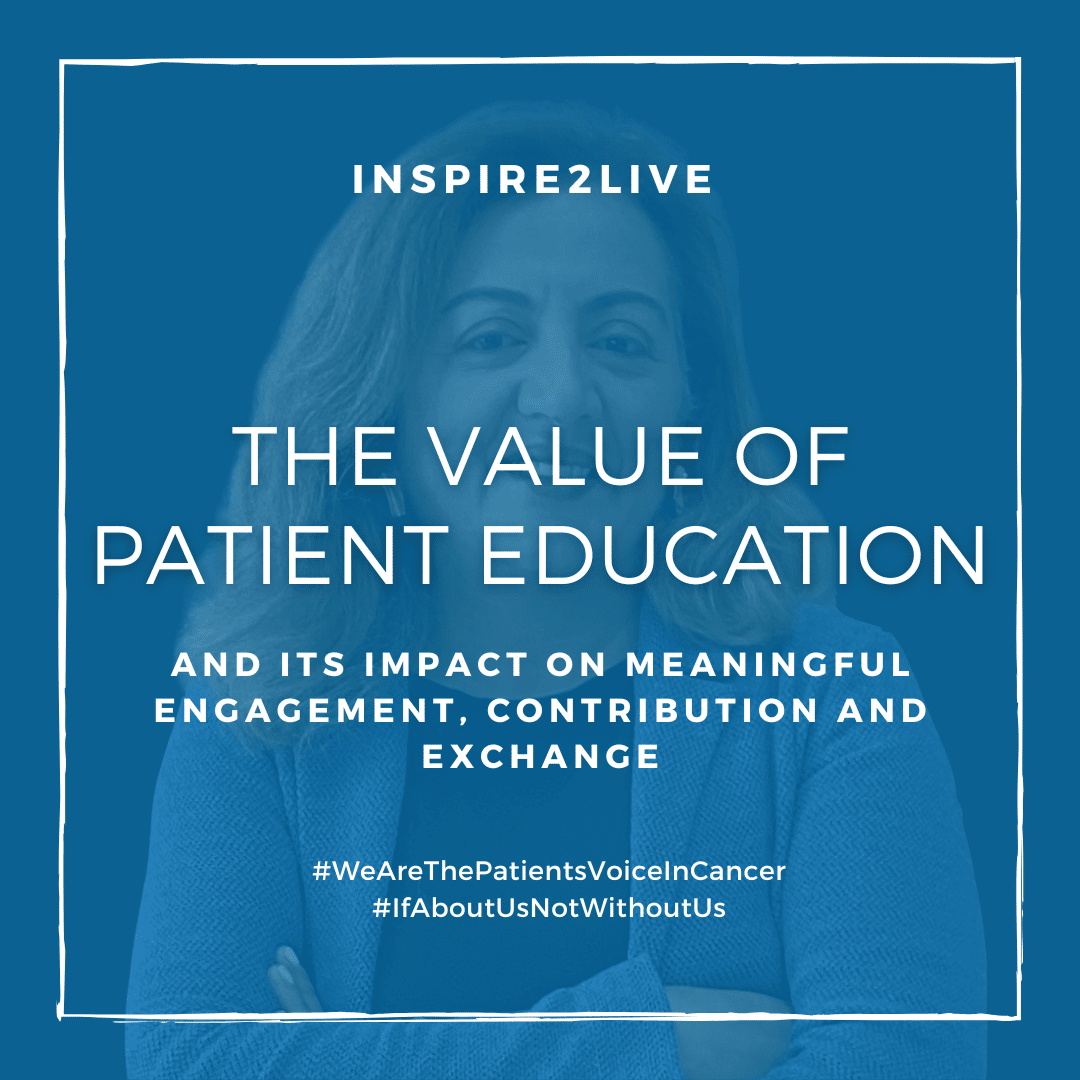The value of patient education and its impact on meaningful engagement, contribution and exchange
The terms patient voice, patient empowerment, and patient engagement all advocate the importance of the role a patient fills by sitting at the table and contributing to the meaningful engagement and exchange. Visualise the patient as an active sparring partner, bringing value and enabling efforts to advance research and healthcare in the areas of greatest relevance and importance. The table we envision is one where the patient sits ALONGSIDE ALL pertinent stakeholders, actively participating and contributing a wealth of information, insights, experience and expertise.
Although there has been a paradigm shift from the patient-centric approach, where the patient is simply a beneficiary, to a mindset where patients are treated as partners, it must be said that patient inclusion in pharmaceutical R&D, as well as clinical research and across the care continuum, has been unstructured and haphazard at best until now. This is slowly changing due to fervent advocacy for patient/public inclusion (PPI) in the fields of research and innovation.
Value-add from patient inclusion will be increased by developing accredited/educated patient experts. All other stakeholders, from researchers, clinicians, healthcare professionals, health data scientists, health authorities and regulators, among others, already have the necessary education, certification and/or accreditation in their relevant fields. The missing piece of the puzzle is “patient education”. Not to be confused with patient education from a health literacy perspective, but a dedicated, comprehensive education programme designed to offer patients and patient representatives access to accredited expert training courses to build a better understanding of patient engagement and partnerships across the stakeholder matrix. A programme designed to advance meaningful exchange and forge collaborations between the different partners, as well as preparing patient experts to be effective advocates and advisors in industry, clinical research, regulatory bodies and health authorities.
The prospect of sitting at the table, as an equal and qualified partner with all other stakeholders, is now attainable. Better patient engagement through education has become mainstream. Patient inclusion is no longer a question of when, but rather how fast, we can develop and roll out accredited patient education programmes that are relevant in the local country contexts.
The importance of the patient-as-partner is finally being acknowledged, and we look forward to the next phase which will include ways to meaningfully assess the extent and impact of patient engagement to achieve even better health outcomes.
Ghada Ibrahim
Patient Advocate Inspire2Live

